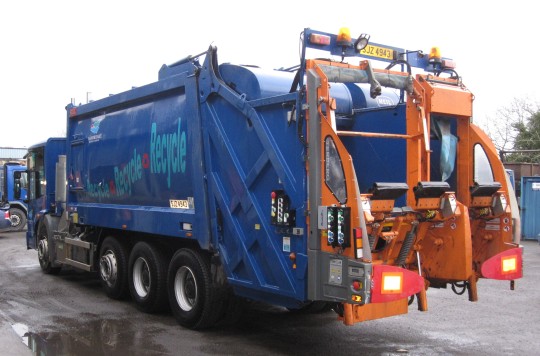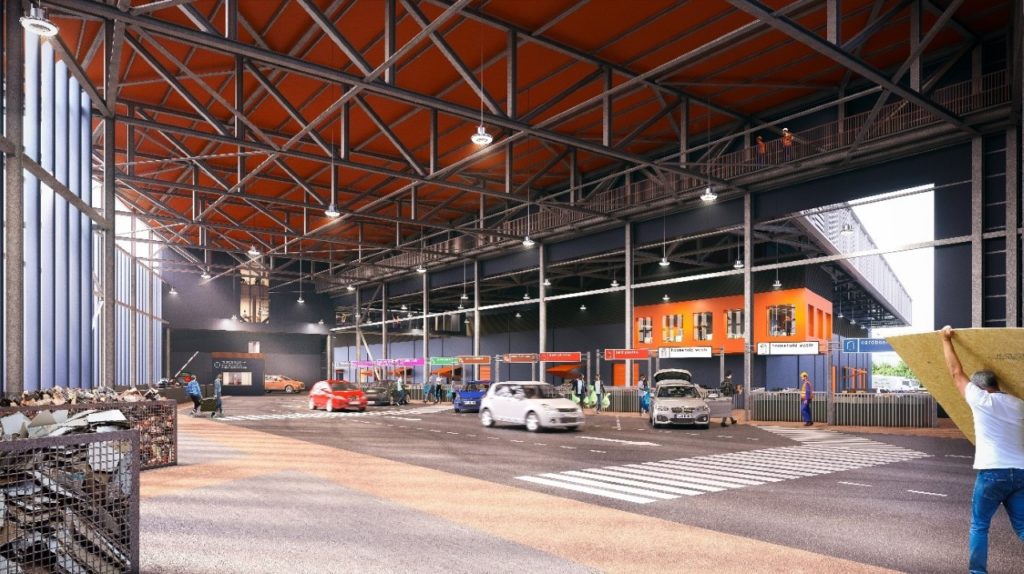The district council began trialling a four-weekly collection system in January across two of its collection routes, one urban Gilford, and one rural Loughbrickland in order to assess its likely impact on recycling performance by residents.

According to figures documented by the council in a report put to councillors in June the kerbside recycling rate increased by an average of 36% relative to the rate recorded over the same period seen a year earlier in pilot areas.
The report also noted that the tonnage of dry recyclables placed in green bins as a proportion of the total green and black bin tonnage, rose by 82.5%, while the amount of organic waste recycled rose by 59.5%.
The council estimates that if extrapolated across the entire district, the impact of this change on the overall municipal recycling rate would be a 12.25% rise over the 55% level recorded in 2012/13, to 67.25%.
Banbridge carried out the trial following concerns over stagnating recycling rates, and the increase in the standard rate of landfill tax to 80 per tonne. The authority was among the highest performing in Northern Ireland according to data recently published by the Northern Irish executive, recording a 55% recycling and composting rate in 2012/13.
From September the local authority is planning to roll out the trial to a further 15,000 households, which will see around 60% of the homes in the district operating under the four-weekly system.
‘What prompted this extra consideration by householders was undoubtedly the need to dispose of waste in a way that ensures their black bin space will last for four weeks.’
Lynsey Daly, Banbridge district council
The council currently collects residual waste on a fortnightly basis, with dry recyclables collected commingled on alternate weeks alongside mixed food and garden waste by council collection crews. The current collection arrangement has been in place since 2011.
Landfill
Commenting on the further roll-out of the trial, David Lindsay, Banbridges director of environmental services, said: This gives clear and unambiguous priority to recycling over landfill. Having developed a system that provides opportunities for a wide range of items and materials to be recycled at the kerbside, the council felt that there is now an over supply of bin space and that too much of that is black bin space.
The vast majority of waste generated in homes is recyclable and if all recyclable waste is placed correctly into the green and brown bins, 240 litres of black bin space spread over a four week period has been proven to be adequate for the remaining small fractions of non-recyclable waste.
Banbridge has also made arrangements for those with special circumstances such as a need for routine disposal of clinical waste.
Reservations
Lynsey Daly, Banbridge district councils waste and environment manager, added: When given the opportunity to discuss any concerns or reservations the overwhelming majority of householders were amazed at the range of items and materials that should be going into the green and brown bins and just how little is left to go in the black bin.
Related Links
What prompted this extra consideration by householders was undoubtedly the need to dispose of waste in a way that ensures their black bin space will last for four weeks.
At present it is not known if the four-weekly collection system will be rolled out permanently or to the remaining 40% of households as the council is to amalgamate its waste services with Armagh and Craigavon councils from April 2015. Banbridge has stated that it will closely monitor the results of the extended trial in order to help shape the future waste strategy across the whole district.








Subscribe for free